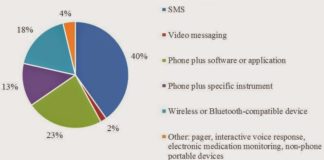There’s a lot of talk about Twitter and how pharmaceutical companies should or should not use Twitter. Most of this focuses on using Twitter to promote drugs and dialogue with the press in order to present the industry’s side of the story.
One thing I never, ever heard anyone suggest as a good use for Twitter is notifying patients about drug recalls, counterfeit drugs, or drug safety warnings. I guess it’s too much to expect drug companies — who claim to have the well-being of patients as their number one priority — to notify users of their products about problems.
For example, the FDA and Novo Nordisk recently warned healthcare professionals about stolen vials of Levemir insulin. This was noted in a Novo Nordisk press release, but not on the Levemir.com Web site. “The safety of our patients is of paramount concern,” said Novo in the press release.
Insulin from stolen lots did not circulate through the normal Novo Nordisk distribution channel and therefore proper storage conditions for the insulin may not have been followed. Patients taking this insulin could be in danger.
The stolen insulin story was in the news again today. Many people also Tweeted about it. @racewithinsulin — Novo’s official Levemir-branded Twitter account — did NOT tweet about it. Too bad, because I think this is the kind of information people who take Levemir and follow Charlie Kimball on RaceWithInsulin would like to hear about.
Now, I met Charlie and he’s a busy guy and he should not have to keep up with all the news about Levemir. RaceWithInsulin is really more about Charlie’s adventures than it is about Levemir per se. So I guess I should not expect him to post this kind of information on Twitter, although it might be a nice gesture anyway.
Let’s not just focus on Novo and Levemir. FDA recently issued an early safety communication about alli, GSK’s weight loss OTC drug (see “Orlistat (marketed as Alli and Xenical): Early Communication about an Ongoing Safety Review“). There was no mention of this on GSK’s Twitter page (@gskus).
BTW, the orlistat safety issue is addressed in this myalli.com discussion thread. I note that MY message was NOT used (see “Will Alli Soon Be the Only FDA-UNapproved OTC Drug?“).
The thread “liver damage” was started by this post: “Heard on the news that some Alli patients have had liver damage, they are doing a investigation into the drug. How do you respond to this? Also, what is a safe amount of time to stay with the pills. My thinking is you establish good habts with a low fat diet, then wean yourself off the pills. Has anyone reported problems with liver absorption after taking the pills? I’m almost afraid to continue, please repsond asap so I can feel safe to continue with my plan. I’ve lost 11 lbs in 3 months, and would like to loose more.”
Maybe this post was written by a real consumer, maybe not. At least GSK addressed the issue.
But, IMHO, Twitter is a better way to notify patients about potential serious problems with drugs and fulfill the promise of making patient safety a “paramount” concern (a concern above all others) of drug companies. So why don’t we see it used that way?
P.S. I neglected to mention that my Twitter pal @PhilBaumann has suggested many ways that pharma and other healthcare organizations could use Twitter aside from marketing & PR. See “140 Health Care Uses for Twitter.”









![6 Digital Tools at the Center of Healthcare Digitalization [INFOGRAPHIC]](http://ec2-54-175-84-28.compute-1.amazonaws.com/pharma-mkting.com/wp-content/uploads/2021/04/6DigitalTools_600px-100x70.jpg)




